Hear from researchers around the world as they share their tips for creating inclusive, equitable research labs, departments, and practices.

César A. Urbina Blanco | Ghent University | Postdoctoral Researcher
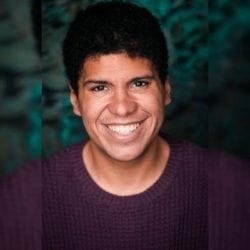
In your opinion, which scientific questions will set the trends in the coming decade, and which science problems would you like to tackle?
I believe that in the next ten years, we will continue to see the rise of multidisciplinary research collaborations to solve societal problems and to understand the fundamental science behind them. One area that I am particularly excited about is climate change and the circular economy. I would like to see more chemists, chemical and environmental engineers, working together with economists and policymakers to design renewable and sustainable starting materials for the chemical industry.
How do you experience diverse leadership, diversity in your lab, publication, and peer-review, promotion, and career progression, in your host country? What are the impediments for creating inclusive, equitable research labs, departments, and practices?
In my opinion, the importance of diversity in science can be exemplified by the law of the Hammer; “if the only tool that you have is a hammer, you treat everything as if it were a nail.” As scientists, we develop particular skills and unique problem-solving approaches based on our training. I will never forget that during my Ph.D., I had a problem I was dealing with for 6 months and an incoming postdoc solved it in a single day. She used a standard technique from her previous group that was unknown to all of the members of my lab. Diversity matters because it increases the pool of tools available in our research team to develop innovative solutions. I am often disappointed by the lack of diversity in Belgian universities where a large number of researchers, especially those at the top, have very similar scientific, cultural and socio-economic backgrounds. Fostering communication and collaboration among researchers with different profiles encourages diversity in the lab. This creates opportunities for researchers to experience by themselves the benefits of having different perspectives when looking at problems.
What is your message to the next generation of scientists, and what are your tips for their success?
Science is for everyone! Though you might not always feel like you belong, you do! My advice to you: it’s nice to have a friend! Surround yourself with people who inspire you, and remind you that, in spite of what some people in positions of powers might say, you belong in science. Regardless of your gender, gender expression, religion, nationality, disability, immigration status or socio-economic status, you belong. We all belong. A career in science is always challenging but undoubtedly easier with a little help from your friends.
Safia Z. Jilani | Georgetown University | Ph.D. Candidate
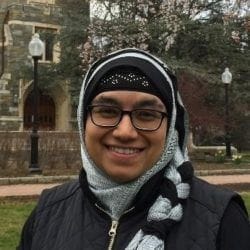
In your opinion, which scientific questions will set the trends in the coming decade, and which science problems would you like to tackle?
There are many rich scientific questions that directly influence our daily lives. Two scientific questions I am interested in are: [1] How can we produce ammonia using more energy-efficient methods? (i.e. electrochemical catalysis) [2] How can we design safe and cost-effective materials to desalinate salt water into clean drinking water? There is significant research done in both fields and finding strong solutions to each question will shape our quality of life in the future.
How do you experience diverse leadership, diversity in your lab, publication, and peer-review, promotion, and career progression, in your host country? What practical steps can be used to encourage inclusive, equitable research labs, departments, and practices?
In the United States, there are many efforts to improve diversity in leadership and using diversity to enhance excellence in science. In my direct experiences, I see my colleagues, other students, and postdocs, leading the way by example on using diversity as a powerful scientific skill. Collaboration, creativity, problem-solving, perspective, innovation, and leadership have all been strengthened by the diversity of scientists working together.
In terms of shaping more inclusive and equitable scientific environments, I have also seen students in multiple institutions advocate for more inclusive language in department policies (to be conscious of medical circumstances, culture, and religions). Students have also advocated for more diverse speakers both in representation of speakers who come to visit but also on topics presented – research, diversity, career development, mental health, and mentorship. This enriches the graduate student learning experience and development of a scientist. These actions lead to a more inclusive and supportive scientific community.
What is your message to the next generation of scientists, and what are your tips for their success?
There is no instruction manual for paradigm shifts. If you wish to see the next great CO2 reduction catalyst in the world, you have to be the one to make it. If you wish to see a stronger and more inclusive scientific community, you have to actively shape it. You cannot contemplate and wish for a catalyst to exist, and similarly, you cannot contemplate and wish for a better scientific community. The power of change lies within our actions.
A mentor shared with me that, “making friends is a scientific skill,” and, “learning to ask others for help,” advanced his career significantly. Both have helped me scientifically in being part of more research collaborations, but I think more importantly, both have deeply shaped my development as a scientist. Asking others for help assists in making new friendships and in turn, opportunities come for when I can pay it forward to help someone else. When we care and help each other, we all progress together.
Isaiah Ray Speight | Vanderbilt University | Ph.D. Candidate
In your opinion, which scientific questions will set the trends in the coming decade, and which science problems would you like to tackle?
In my chemist eyes, I would like to see more work in the mechanochemical space for the production of complex molecules. Potentially performing a total synthesis completely mechanochemically or making key linkages in a solvent-free or solvent assisted manner could be a very interesting area of study. With the potential for milling materials to become reagents, this could prove unique for metal catalysed and metal-mediated reactions processes.
In my diverse leader eyes, I would like to see more diverse faculty across the board. C&EN stated that only 1.6% of chemistry faculty at the top 50 institutions in the United States are Black. The percentage of Ph.D.s awarded in the United States is 4.5%. This issue caught my attention in the poor transition from undergraduate to graduate school. Developing a better pipeline for students to go to graduate school and not only survive but thrive is so important.
How do you experience diverse leadership, diversity in your lab, publication, and peer-review, promotion, and career progression, in your host country? What are the impediments for creating inclusive, equitable research labs, departments, and practices?
Diverse leadership has been a part of my career path since the very early stages even though I did not see it as diverse. Growing up in a predominantly black environment, I saw majority-black influential figures in the form of teachers, mentors, preachers, city officials, etc. It was not until I began graduate school that I realized that my experiences in undergraduate at an HBCU and growing up in a predominantly black area was not an accurate image of the STEM world. I started to value the experiences I had and I used them to become the leader in diversity I wanted to see. Having discussions with a few of the diverse faculty at my university to get insight into their pathway to success, their career choices, and the reasonings behind why they made the choices they did served useful in inspiring me to use my position and my voice to become a leader not only in the lab but outside as well.
Some of the impediments, however, are typically in the form of value to those not of the underrepresented background. When I started graduate school a large number of my colleagues did not know what an HBCU was, let alone their importance in the black community. They could not grasp the value of these universities or the work they do as patches to a very leaky academic pipeline for URMs. Unless it is valuable to all to be able to create an opportunity for the next ground-breaking researcher, the next author of a Science article, someone who could be a key player of a project that could make its way into Cell rather than filling numbers for a quota for a grant, we can then start counting diversity and inclusion efforts as a progressive effort and a showcase of student talent rather than student origin.
What is your message to the next generation of scientists, and what are your tips for their success?
Be the change you wish to see. Instead of waiting for someone to implement your ideas, start working on making them happen. Use the tools at your disposal to make opportunities happen whether it be for yourself or for others. The longer you wait for someone to make your ideas a reality the less they stay yours. Also, don’t doubt your ability to make change. Your voice is stronger than you know, your heart is stronger than you believe, your mind is more powerful than you can imagine. With that, stay motivated to carve a path that you are proud of.
Tomislav Friščić | McGill University | Professor

In your opinion, which scientific questions will set the trends in the coming decade, and which science problems would you like to tackle?
A scientific question and challenge that I would like to tackle is the environmental impact and sustainability of chemical processes and manufacturing, so that we minimize the negative impacts of our work and inventions, while maximizing positive contributions to society and technology. This requires a holistic view of lifecycle analysis, of being able to predict and evaluate consequences of a chemical process from a wide range of aspects, including sourcing and processing of feedstocks, and the environmental impact of the chemical process itself, as well as of its products upon long-term exposure in the environment. Development of such holistic approaches requires extensive teamwork, transcending the barriers between different fields of science and technology, and broader acceptance of the view that advances in science are most often not the result of contributions made by one single individual, but of a wider team of people that are each distinct in their expertise, location, and also time of activity.
How do you experience diverse leadership, diversity in your lab, publication, and peer-review, promotion, and career progression, in your host country? What are the impediments for creating inclusive, equitable research labs, departments, and practices?
In our group, leadership is not limited to the Principal Investigators only, and all members are encouraged to create and direct their own research goals – with the research group “leader” acting as a mentor and a guide. The ability to create such constructive diversity was previously assisted by group members extensively attending and presenting at international meetings, and it has been enhanced in the recent days of the pandemic through recent adoption of teleconferencing technologies such as Teams or Zoom to encompass experts outside of our research group, too.
When it comes to evaluation of excellence, I have occasionally witnessed negative views based on origin, school, country, or oversimplified metrics such as impact factor of a journal, or an h-index of a researcher. This is a major impediment to equitable science – a person’s ability to contribute to science and technology cannot and should not be judged based on anything else except on their activity and enthusiasm.
I believe that creating a competitive, “sink-or-swim” environment in science is not key to success in research and is actually deleterious. The key to academic productivity lies in being motivated and being able to motivate others. In my experience, students and senior researchers alike are most motivated and productive when they feel that they are a part of a worthwhile community, when they work together, engage in open and constructive discussion, and feel free to start new collaborations that will enable them to explore their joint ideas. Legendary tales of “great leaders” who single-handedly push forward the boundaries of research perhaps make for enjoyable reading, but are a major impediment to creating an equitable and rapidly advancing science.
What is your message to the next generation of scientists, and what are your tips for their success?
Do not be afraid to build teams that cross boundaries of traditional disciplines, and engage researchers of different backgrounds. Aim for solving problems in a multi-dimensional way, advancing the fundamental understanding, creating applications for your research, but at the same time keeping an eye focused on environmental impacts. Think about the systems as a whole, and how your contribution or invention affects it.
Do not think about research as a competition, think of it is a collaboration and a dialogue with peers from across the world. Other researchers are not competitors, they are colleagues.
Embrace the view that science and research are not about one single researcher, and that we all grow if we work together. Actively oppose the view that there is only one “corresponding”, ‘leading” researcher, only one person who did the “job” – future of research lies in multi-disciplinary efforts of teams, that are not aligned with classical and outdated metrics that focus on one individual.
Finally, do not be afraid to build your research program and interests around re-investigating and re-evaluating prior work. New technologies bring us the ability to look at established knowledge with new eyes, which can lead to paradigm-changing breakthroughs.
James Mack | University of Cincinnati | Professor
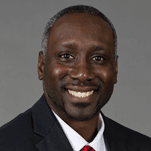
In your opinion, which scientific questions will set the trends in the coming decade, and which science problems would you like to tackle?
I think the scientific questions that will set the trends in the next decade is “How can I build a team to tackle complex scientific problems?. Many of the “easy” problems facing science have been conquered, however, extremely complex interdisciplinary problems are on the horizon. Societal problems can not be solved simply with one discipline. For example, cancer cuts across medicine, chemistry, biology, sociology, psychology, economics, etc. If we are to create truly sustainable solutions to the problems currently plaguing our society, it will not be done by single-author publications.
How do you experience diverse leadership, diversity in your lab, publication, and peer-review, promotion, and career progression, in your host country? What are the impediments for creating inclusive, equitable research labs, departments, and practices?
Throughout my career, I have worked with students from various economic backgrounds, of different races, sexual orientations, religions, and ethnicities. I am proud to say, the group that contributed to my research program truly reflects the diversity of the United States. I believe every group member has benefitted from this truly diversified work environment. During my time as a professor of chemistry to the roughly 200 students that have worked in my research group, 63% of the research was performed by majority scientists, where 37% were underrepresented minorities. Showing very little difference in publication rate, 68% of the co-authors were from majority groups and 32% underrepresented minorities. The same is true if you compare the gender of my research students, 56% of the research was performed by males and 44% performed by females. Where little difference is observed in co-authorship, 59% of the co-authors were males and 41% female.
One of the impediments for creating a diverse and inclusive environment is the fact that homophily is just easier. Diversity challenges beliefs, forces people to think, and causes people to be less secure. If diversity is done well, people should be arguing, getting emotionally charged, become unsure of themselves and their position on a particular issue. These are all the things that have happened in my group meetings and all the things that happen when learning takes place. Just like learning a new subject, diversity constantly challenges your thoughts and beliefs. Because of this pain, many people seek homophily because they just don’t see the value in entering into diverse spaces, it is simply too uncomfortable. Similarly, many people choose to stay ignorant, because as studies have shown an ignorant mind is far happier than an enlightened one. However, ignorance is the opposite of what science is all about.
What is your message to the next generation of scientists, and what are your tips for their success?
I think the next generation needs to have a better understanding than previous generations that scientists are people too. We all have been trained to take yourself out of science and be objective. These are good lessons and helps us to have a jaundiced eye when analysing results. However, it is impossible to turn off your emotions. The conversation needs to change to helping future scientists manage bias rather than ignoring it. Confirmation bias is part of the human experience, we all have it and it rears its head at various points in our lives. As scientists we have all rooted for results and wanted our predictions to be proven correct, that is only human. The next generation has to help scientists manage these emotions, because that has always been part of the data, it is just a point nobody wants to discuss.
Emanuel A. Waddell | University of Alabama in Huntsville | Associate Professor

In your opinion, which scientific questions will set the trends in the coming decade, and which science problems would you like to tackle?
In the coming decade, scientific problems that should be addressed include climate change, low-cost health care, and the impact of technology in society. With respect to technological impact on societal change, one may consider the development of high-resolution low-cost charge-coupled devices (CCDs) that have become available to many in the public in the form of a mobile device. The near-ubiquitous and facile recording of inequitable, racially-biased, and unjust actions of individuals was not possible as a little as 40 years ago. The impact on society of this technological advancement cannot be understated as evidenced by the recording of the public execution of Mr. George Floyd in Minneapolis, MN. Low cost, high-resolution CCDs allowed citizens to live-stream a public execution via affordable high-speed cellular connections. In addition to shedding light on systematic issues the availability of high-resolution low-cost CCDs, also brings up questions about unauthorized personal, corporate, and government surveillance. Public access to datasets raises similar issues. It is critically important that individuals from diverse backgrounds have access to data, possess the adequate tools to analyse data, and have a voice when designing policy around data.
How do you experience diverse leadership, diversity in your lab, publication, and peer-review, promotion, and career progression, in your host country? What are the impediments for creating inclusive, equitable research labs, departments, and practices?
Organizations that become diverse are the result of individuals who prioritized organizational diversity. Organizational leadership must be deliberate and intentional in creating an atmosphere of inclusion. Individuals who prioritize this from a personal compass are rare. Practical steps to encourage inclusion and equity in the academic enterprise include (1) establishing metrics in the tenure and promotion process that address historical inequities, (2) correlating federal and state funding to equity and inclusion, and (3) establishing equity and inclusion as part of public rankings. Big data makes the possibility of measuring short- and long-term outcomes possible.
What is your message to the next generation of scientists, and what are your tips for their success?
The scientific skillset of scientists is directly applicable towards addressing institutional and societal change. One must use data and the human narrative to create policies that drive systems to become more inclusive. We must be objective in accepting that some of our hypotheses are false and must be modified or thrown out if necessary. The current data indicates that the scientific enterprise has failed and that it is neither completely merit-based nor scientifically objective. The next generation of scientists must continue to examine the data so as to change the narrative.
Jodie Lutkenhaus | Texas A&M University | Professor
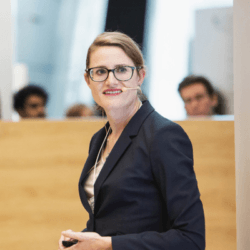
In your opinion, which scientific questions will set the trends in the coming decade, and which science problems would you like to tackle?
My long-term goal is to resolve how batteries might fit into our future circular economy. This cannot be tackled by one lone researcher, but instead requires a team with backgrounds in chemistry, chemical engineering, materials, economics, and policy.
How do you experience diverse leadership, diversity in your lab, publication, and peer-review, promotion, and career progression, in your host country? What are the impediments for creating inclusive, equitable research labs, departments, and practices?
I learned how to succeed from my doctoral advisor, Paula Hammond, who is now the first black female department head of chemical engineering at MIT. She valued each of us and treated us as peers at every stage of the doctoral experience. From her, I learned resilience and persistence, which I pass on to my own students. I think a main impediment to fostering student growth and well-being is lab culture, in which there might exist unhealthy competition or student-advisor power struggles. Instead, my goal is to create a lab culture that represents the type of “family” that I would like to have as if I myself were a student, where everyone is heard and respected and where everyone’s contribution has value.
What is your message to the next generation of scientists, and what are your tips for their success?
When someone tells you that you can’t do it, then you are probably on the right track. If it is hard, then it is yours for the taking, because few others will persist to the end. As a scientist, I pick problems that are hard and that might seem impossible because I know that my lab will be the first one. The joy of mentoring my students through that process is why I am here.
Martine I. Abboud | University of Oxford | Junior Research Fellow
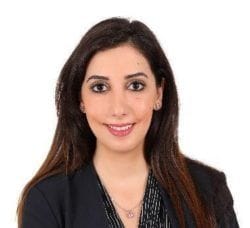
In your opinion, which scientific questions will set the trends in the coming decade, and which science problems would you like to tackle?
There are many areas in the sciences that we still do not understand much of. For instance, our understanding of the human brain and the nervous system, the driving forces in developmental biology, the onset of autoimmune diseases, and bacterial/viral-host interactions are still very limited. Novel discoveries in these fields will definitely be breakthroughs. The same applies to developing novel and more powerful methods enabling quicker drug discovery, more comprehensive diagnostics, and deeper biological understanding. All of these topics require collaborative forces across different divisions and disciplines, a real global coalition of effort to get a diverse understanding of the problems across different populations and unite the tasks and efforts to address these challenges. Working together in such initiatives requires a certain set of skills (interpersonal/transferable skills; e.g. good communication, management, leadership, etc) that could only be achieved by embracing a culture of openness and diversity. Dialogue and collaborations, rather than competitions, can truly allow scientists to unlock the next level of hard-core knowledge!
How do you experience diverse leadership, diversity in your lab, publication, and peer-review, promotion, and career progression, in your host country? What are the impediments for creating inclusive, equitable research labs, departments, and practices?
The best way of becoming a fully-rounded scientist is by complementing science itself with what shapes a scientist. For instance, workshops that are focused on the importance of science communication, leadership, outreach activities, interdisciplinary science, and global integration. All of these topics are close to my heart as I have advocated for them on internal committees in our department. My proudest moments have always been about lobbying and succeeding in introducing change to internal policies. A recent personal ‘happy moment’ was introducing management training for new principal investigators/group leaders. I believe that being great at science and people management are not necessarily related; this training will help to further create a better environment for graduate students, ensure their wellbeing, and encourage a culture of proper life-work balance. Encouraging women and those from minority backgrounds to pursue careers in science is unfortunately not enough. If we do really want them to be involved, we need to create the right environments for them to thrive. As much as mobility is important to provide scientists with wider perspectives, the current culture of “postdoctoral nomading” is very destabilising and difficult for people with partners and/or caring responsibilities. It should not be a prerequisite on fellowship applications; women should not feel pressured into changing environments every couple of years. Another simple example of creating suitable environments is by not holding talks/seminars after 4 pm. People with caring responsibilities and/or from underrepresented backgrounds can be directly excluded from these meetings and this can make them wrongly feel guilty and/or less dedicated than their colleagues. Proper life-work balance is important and nurturing; it enhances productivity and happiness.
What is your message to the next generation of scientists, and what are your tips for their success?
Curiosity is the driving force of a scientist. The most exciting discoveries arise from mistakes. My advice is not to be afraid to make mistakes. Troubleshoot and think critically all the time. It might feel hard sometimes, but keep going. Do not lose confidence in yourself. Manage your time and do your tasks. There are strong networks and communities of more experienced scientists who can help and support us; do not be afraid to speak out, reach out, and get involved.
DamiLola Aderohunmu | Covenant University | Research Assistant
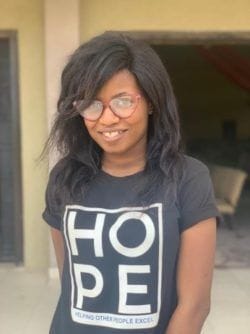
In your opinion, which scientific questions will set the trends in the coming decade, and which science problems would you like to tackle?
As an African scientist, in the coming decade, I believe interdisciplinary health research tailored towards the challenges that affect the continent will dominate the scientific space. Precision medicine with the genetic diversity of Africans taken into consideration. More scientists are collaborating from within and outside the continent and resources are being shared for the love of science.
Right now, I would like to work on drug discovery research that is tailored towards diseases.
How do you experience diverse leadership, diversity in your lab, publication, and peer-review, promotion, and career progression, in your host country? What are the impediments for creating inclusive, equitable research labs, departments, and practices?
In order to have an inclusive laboratory, there should be a lot more focus on mentorship relationships and openness of research. Different research teams within a department should collaborate where possible and have discussions on their different projects to aid this. Funding universities and creating more research laboratories will go a long way to encourage scientific research and creating more inclusive laboratories.
What is your message to the next generation of scientists, and what are your tips for their success?
I am basically a new generation of scientist but I will like to tell them to hold on even when the procedures don’t go as planned. There is always a solution. It might be found in page 3000 of a google search or a discussion with a more experienced colleague.
Always ask questions/ Keep the curiosity alive.
Don’t forget to enjoy the chemistry amidst the lab chaos.
Never throw away your ethics. I don’t think a scientist without ethics can be called one.
Be kind.
Don’t be scared to collaborate to make the science better.
Stay true to the science with all diligence.
Try to live a balanced life.
Stay abreast of advances in your field.
Science is hard work but if it is what you are passionate about, you are capable of excelling at it.
Stephen O. Aderinto | University of Sheffield | Ph.D. Student
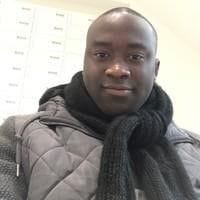
In your opinion, which scientific questions will set the trends in the coming decade, and which science problems would you like to tackle?
Chemistry in the context of biology and medicine would remain a long-term research field, for it desires to solve fundamental biological and medicinal questions, thereby fulfilling Linus Pauling’s insightful prediction given in the last paragraph of his 1954 Nobel Prize lecture. Chemists would relish working in this area as it prompts them to give back to global research into healthcare which aligns with Goal 3 of the UN SDG goals. In cancer research, the discovery of new drugs with superior therapeutic properties to cisplatin that can be made available on the sustainable world healthcare market, for instance, is a worthwhile research pursuit. Researchers in this area might want to provide answers to several pertinent issues, including getting better at the synthesis of novel anticancer drugs, getting better at the design of novel therapeutics with improved cytotoxicity and specificity, and perhaps most importantly, treating cancer early with a 100% cure rate, thereby reversing the increasing trend of cancer-induced deaths reported by WHO. New therapeutic methods like photodynamic therapy (PDT) would also constitute a worthwhile goal to pursue given a careful choice and/or use of a suitable sensitizer.
Research into antimicrobial resistance (AMR) would also set the pace for the future and will signal many unprecedented scientific breakthroughs. The visualisation and killing of notorious superbugs (such as antibiotic-resistant gram-negative bacteria, including pathogenic E. coli) constitute both essential and urgent research attention. Gram-negative bacteria strains can implicate some infections including pneumonia, urinary tract infections, and bloodstream infections. This family of infections is malignant, posing difficulty in their treatment. In the EU alone, antimicrobial resistance leads to 33,000 annual deaths, and with the look of things, 10 million people could die every year due to antibiotic-resistant infections except an urgent solution to this menace Is provided by the global community in this area of research. Over the last five decades, there has not been any viable treatment for gram-negative bacteria, and as of 2010, no potential drugs have entered clinical trials.
How do you experience diverse leadership, diversity in your lab, publication, and peer-review, promotion and career progression, in your host country? What are the impediments for creating inclusive, equitable research labs, departments, and practices?
Even though the desired level of diversity, equality, and inclusion (DEI) has not been fully realized in the UK academia, there is doubtlessly a fair sense of DEI maintained within various research groups. For instance, communal sense of working, shared research space and facilities, etc constitute a daily experience and are a foretaste of greater things that could be done to ensure DEI. Gender (or sex) inequality still exist besides inequalities in other forms such as those based on disability, research domain, nationality and scientific discipline. Major funding bodies like the UKRI are already adopting and implementing forward-looking policies with various advisory groups on DEI being formed, one typical example being the Equality and Diversity Advisory Panel (EDAP). Many universities and academic departments across the UK are also now developing DEI action plans towards the achievement of diverse, equitable, and inclusive research labs, departments, and practices.
What is your message to the next generation of scientists, and what are your tips for their success?
Future scientific breakthroughs would involve thoughts and ideas from a mix of brilliant scientists and would come from research environments that tolerate diversity, equality and inclusion (DEI). Every potentially good idea should be considered, and no idea should be deemed irrelevant. The curiosity of researchers and their sense of raising worthwhile scientific questions should be triggered as this would be key to the success of future research pursuits. An eclectic approach in research methodology would be the way forward and should be embraced. The individuality, including the uniqueness of perspicacity of every researcher, should be celebrated. In the immediate future, young scientists can engage in networking, innovating, and contributing wherever they can (in terms of publishing and patenting). They should develop a reputation as researchers who are actively impacting the research world whilst practising science with astute, creative prowess, trusting their perspicacity as unique researchers.
Lučka Bibič | University of East Anglia | Ph.D. Candidate
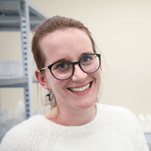
In your opinion, which scientific questions will set the trends in the coming decade, and which science problems would you like to tackle?
Many of the scientific challenges we face today are new and there will undoubtedly be others that arise in the future. Such questions will demand innovative approaches and solutions to overcome them. However, no longer are higher education institutions able to train graduates to address all of the current and emerging challenges form a singular disciplinary source. Interdisciplinary approaches to research and training are essential underpinnings to best meet the dynamic needs of today’s higher education students. Multiple viewpoints and areas of expertise can leverage synergic team efforts to problem-solving, innovation, training next-generation leaders, and advancing research and development. But how to create and later empower a diverse workforce? This is, I believe, one of the problems that I’d like to tackle in the coming decade.
How do you experience diverse leadership, diversity in your lab, publication, and peer-review, promotion, and career progression, in your host country? What are the impediments for creating inclusive, equitable research labs, departments, and practices?
While pursuing my Ph.D. in a laboratory in Norwich (UK), the labs there attract people from all over the world, and getting to interact with them not only enriched me personally, but it also made me a better thinker. I was exposed, daily, to challenges from different disciplines and perspectives – challenges that made me better to explain the rationale and conclusions of my research. The international environment forced me to consider different perspectives, to begin with and helped me to communicate my ideas more clearly in the end. This back-and-forth between challenge and response was what drove my work forward.
What is your message to the next generation of scientists, and what are your tips for their success?
Diversity in the lab exposes my research to a wealth of different perspectives and I believe that being inclusive gives research groups a competitive edge. I was fortunate to be able to build on that experience at the very start of my career. During my undergraduate studies at the University of Ljubljana (Slovenia), the Eureka grant coupled together with the Erasmus Program gave me financial support for 1.5 years master study in a drug delivery lab at the University of Copenhagen (Denmark) before I embarked on my Ph.D. at the University of East Anglia (UK). The people I collaborated with had backgrounds in immunology, medicine, psychology, education, and even computer science. Throughout these international experiences I learnt that our different scientific backgrounds, research topics, and our different ethnicities and cultural upbringings push me outside of my comfort zone. Thus, I believe that the future demands a new mindset in which diversity and inclusion are explicitly linked to one’s success. I’d urge young scientists to apply for exchange programs which can improve their intra-cultural skills and work capacities.
João Borges | University of Aveiro | Researcher
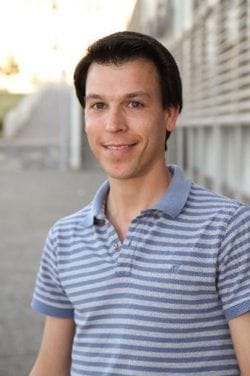
In your opinion, which scientific questions will set the trends in the coming decade, and which science problems would you like to tackle?
There are many pressing scientific questions that ought to be addressed in the upcoming decade for the benefit of society. The development of simple, fast, cost-effective, and customized nanotechnology-based approaches and advanced nanomaterials to ensure healthy lives and promote well-being of all humans will be at the forefront, which will extensively benefit from an inter/multidisciplinary research approach and collaborative effort. The vital role of inter/multidisciplinary collaboration in the healthcare arena has been demonstrated by the joint efforts of scientists working across different fields, clinicians, regulatory authorities, policymakers, and industrial players in tackling the COVID-19 outbreak. I anticipate that, in the next decade, nanotechnology will revolutionize the way diseases are diagnosed and treated in humans, potentially curing major ones (e.g., cancer, infectious, cardiovascular, or neurodegenerative disorders), and saving a huge number of lives.
How do you experience diverse leadership, diversity in your lab, publication, and peer-review, promotion, and career progression, in your host country? What are the impediments for creating inclusive, equitable research labs, departments, and practices?
In the lab in which I am working as a Junior Research Fellow, I share my passion for research with a collaborative multidisciplinary team of researchers with diverse backgrounds and expertise, race, gender, nationality, and geographic location. Such diversity is vital in approaching scientific matters from a different perspective, fostering innovative ideas, and driving scientific excellence. At a national level, promotion and career progression are tough for both women and men. Moreover, over the last two decades, there has been a huge increase in the number of Ph.D. holders. However, after reaching the postdoc stage, it is very challenging to reach a professorship position and/or a position of professional independence. Outside of academia, the opportunities are even scarcer. There should be more investment in science from companies, in close collaboration with universities and research centres, to create more jobs for Ph.D. holders.
Several steps could be implemented to promote diversity, equity, and inclusion (DEI) in research labs. Those include promoting diversity and inclusiveness in lab members’ composition, and implementing an equitable, inclusive, transparent, and respectful recruitment and open selection process explicitly disclosing equal opportunities. To this end, selection committees should be as diverse as possible. Furthermore, academic institutions should advertise diversity-related events and their statements of equity and diversity throughout all available channels.
What is your message to the next generation of scientists, and what are your tips for their success?
The next generation of scientists should pursue their dreams. The future of scientific research is in your hands and you have the power to drive change and strive for success. Focus your research in a topic that has been barely addressed or not addressed at all, be creative, be resilient, and be passionate about what you are doing and want to accomplish. Seek interdisciplinary collaborations, ask for feedback, and do not be afraid to fail but, instead, embrace failure. Failure is a highly valuable learning experience that will allow you to thrive along your career path. Find a supportive mentor that can serve as a role model, and a lab that proactively promotes DEI, and welcomes diverse perspectives, allows you to work on a topic of your interest, and in which your voice is heard. For that, it is key that you talk to researchers working at those labs that you aim to join and learn from them what you can expect. Last, but not the least, have time for yourself and work towards maintaining a healthy work-life balance. This is fundamental to accomplish both your personal and professional goals.
Vy Maria Dong | UC Irvine | Professor
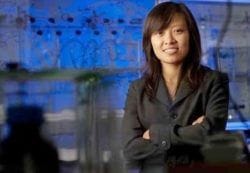
In your opinion, which scientific questions will set the trends in the coming decade, and which science problems would you like to tackle?
In the coming decade, we’ll see more scientists coming together from different disciplines to solve problems in energy, medicine, and sustainability. I expect chemists will also assimilate concepts from the cognitive sciences to learn more about being mentors and leaders. My research team is focused on developing catalysts that allow one to forge bonds with greater control, efficiency, and less waste.
What practical steps can be used to encourage inclusive, equitable research labs, departments and practices?
Step 1. As chemistry professors, we are passionate about thermodynamics, kinetics, and reactivity. We spend years mastering complex concepts and passionately teaching these ideas to our students, with the belief they will use this knowledge to impact the world. The same way chemical principles are ingrained, let’s learn about anti-racism, implicit bias, and inclusive excellence. By educating ourselves on these critical ideas outside our field, we can be better teachers, colleagues, and leaders. There’s a lot to learn and do. But first, we must agree on the mission. Creating the most inclusive and equitable climate possible for doing chemistry is an objective and honorable mission we can share; the result will be more excellence in teaching, service, and discovery. Step 2. A second practical step is to evaluate and improve the process we use for accepting graduate students and hiring and promoting colleagues. Are the criteria biased, short-sighted, unjust or perhaps just incomplete? Grades, GPA, and recommendation letters are the typical metrics—yet, they cannot tell the complete story. We can take into account an applicant’s “grit” factor, which has been shown to be a more important predictor of achievement than talent. In addition, we can evaluate a candidate’s ability and interest in promoting a more inclusive and diverse climate. Step 3. Recruiting and hiring is important, improving the climate is paramount. As practical steps, I created an orientation lecture for incoming graduate students to teach about imposter syndrome, implicit bias, and inclusive excellence. I serve as the faculty advisor for Iota Sigma Pi, the women in chemistry club. With diversity supplements through the NIH, I’ve had the support to train and mentor postdoctoral fellows from underrepresented groups. As an invited speaker, I make a commitment to sharing not just chemistry, but a message that can help inspire change. By teaching large introductory courses, I encourage and inspire students at an earlier stage in their careers. Participation in social media allows us access to more diverse views. For example, I participate on Twitter, a platform where diverse voices can be heard and amplified.
What is your message to the next generation of scientists, and what are your tips for their success?
To the next generation, my advice is to read widely. There’s not a single person who can guide you through the many challenges on your journey. Through books, you have access to the world’s experts on leadership, writing, creativity, and physical organic chemistry!
Fun Man Fung | National University of Singapore | Instructor
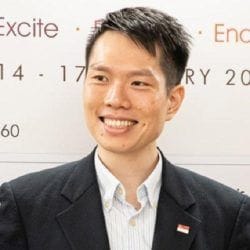
In your opinion, which scientific questions will set the trends in the coming decade, and which science problems would you like to tackle?
I wish scientific research to address biases, namely 1) Confirmation bias and 2) featured-positive effect. As researchers, it is imperative to be curious about a research topic and create a null hypothesis of research. However, most research publications favour positive confirmation of the hypothesis. While it is understandable that research has to provide supporting information to evidence the hypothesis, it is imperative for seamless storied research projects to publish what did not work (DNW) also. Taking the English naturalist Charles Darwin as an example, his acclaimed evolutionary theory stood for decades because, in the process of proving its validity, he also gathered evidence that did not conform to his initial conjectures. In the same way, negative results in science provide a catalytic pathway towards a research path less trodden.
How do you experience diverse leadership, diversity in your lab, publication, and peer-review, promotion, and career progression, in your host country? What practical steps can be used to encourage inclusive, equitable research labs, departments, and practices?
As a member of NUS faculty, I am very grateful that this world-class university celebrates the diverse strengths of scholars and reflects the multiracial, multi-religious, and multi-ethnic society of Singapore. Aside from the usual tenure track, NUS offers three distinct tracks of academics for career progression: Research, Educator, Practice. The educator track where I am in, are academics who are extremely passionate about teaching. The creation of these three distinct career paths, Research, Educator, Practice, enables a scholar to excel in his/her area of interest and not be unfairly and unfavourable compared to colleagues delivering excellence in the other two aspects of chemical science. Luckily, the university put in place a meritocratic system to conduct an annual review using the field weighted citation impact (FWCI) to evaluate performance more fairly. Even so, what I gather is that a number of researchers consider scientific research as competitive, and not collaborative. I believe that academic leadership can exercise more moral courage and hire prudently to ensure synergies between researchers. This pursuit of diversely speaking, diversely thinking community of researchers can help in achieving some of the UNSDG Goals #5, #10, #16.
What is your message to the next generation of scientists, and what are your tips for their success?
This biblical quote is helpful in guiding you. “Do nothing from selfish ambition or conceit, but in humility count others more significant than yourselves. Let each of you look not only to his own interests, but also to the interests of others.” Philippians 2:3-4 Be supportive of your lab mates and people around you. Adapt yourself to the environment, give yourself time to fit in and discover the positive traits in everyone. Time is the best commodity you have in deliberately practicing a lab protocol that you might not enjoy, in getting over a set-back, in dealing with emotions. The boring routine training is what it takes to build mastery. It is vital not to lose track of your goals, always keep them in sight, and take incremental steps to get there. Work very, very hard.
Torsten John | Leibniz Institute of Surface Engineering (IOM) | Postdoctoral Researcher
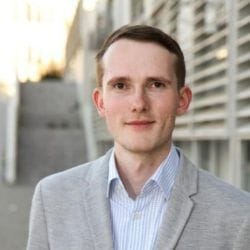
In your opinion, which scientific questions will set the trends in the coming decade, and which science problems would you like to tackle?
The collaboration of scientists of different disciplines, countries, and backgrounds benefits the excellence in solving complex challenges in society. While researchers need to be the experts in their field, it is as important for them to be well-informed on a broader perspective, to be able to transfer skills to new problems and to realize that scientists are part of a political context. Innovation often requires overcoming traditional viewpoints. Publishers and reviewers should be open to new ideas, from less-known authors, and subject those to the same strict and rigorous evaluation as all other works. Current double-blind review processes of some journals tackle this but it remains to be seen how feasible that approach is in the light of self-citations. Algorithms using artificial intelligence may support publishers in choosing peer-reviewers to ensure objective unbiased feedback. Reviewers and editors need to deliver quality decisions, while they are often burdened with too many requests, leading to the potential rejection of valuable works or acceptance of questionable manuscripts. This could be solved by widening the reviewer pool towards early career researchers and implementing a tracking tool that gives credit to reviewers. The COVID-19 pandemic also revealed the opportunities of open science, data sharing, and the need for thorough peer-review.
How do you experience diverse leadership, diversity in your lab, publication, and peer-review, promotion, and career progression, in your host country? What are the impediments for creating inclusive, equitable research labs, departments, and practices?
Cooperative student-mentor relationships can ensure to build up inclusive environments for students and staff members that are welcoming for every background and in which people can raise their ideas and concerns. Working with passionate and smart people, regardless of their ethnicity, gender, age, sexual orientation, or other aspects, is a key factor for success. While heterogeneity and diversity involve contrary viewpoints and unfamiliar ideas, they are the ones ensuring innovation, advancements, and research integrity. One important aspect that I learned during my few years in research is to be and remain open-minded for new ideas, technologies, and approaches and to take active leadership for a change for the better.
To support diverse and inclusive environments at universities, awareness should be raised for potential challenges that some groups face, and barriers should be removed. One such example is care responsibilities for children, which could be eased by supporting child-care at work and at conferences. Another important aspect of diversity is to empower and mentor underrepresented groups already early on in their development. Most careers are biased based on the wealth or academic background of the parents which unequally affects the disadvantaged ones. Such inequalities are difficult to balance later on and selection committees may focus more on the future plans, research ideas and the inherent potential a person offers rather than the achieved.
What is your message to the next generation of scientists, and what are your tips for their success?
Believe in you! Focus on what you are passionate about and ask yourself every day the why behind your studies, work, and your goals. Success is a very personal dimension and it means something different to everyone. I realized early on that it does not help to compare myself with others but instead to look at whom I was yesterday, who I am today, and who I want to become tomorrow. It can also help to search for mentors that can serve as a role model and those that recognize your strengths and support you in achieving your goals. Next to my studies, I volunteered on the board of the German (JCF), European (EYCN) and International (IYCN) younger chemists networks. The leadership, intercultural and communication skills that I gained through this, as well as through my research stays abroad, largely formed who I am today.
Felicia Lim | Monash University Malaysia |Researcher
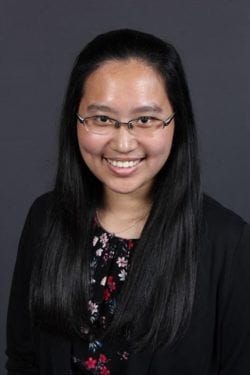
In your opinion, which scientific questions will set the trends in the coming decade, and which science problems would you like to tackle?
I would like to see a change in the metrics of success in academia- to be less focused on the number of journal publications and impact factor of said publications. Sadly, it is too often that the content of scientific research is pre-determined and judged based on the type of journal it is published in. I have also witnessed researchers boasting about the number of publications they ‘owned’. Unfortunately, these metrics are not lost on the new generation of scientists, with graduate students expressing their wishes to publish “many papers” to be seen as successful. As such, the process of progressively working towards a high-quality publication (the research work, working as a team, exchange of ideas, interdisciplinary collaboration) is often overlooked and on the back burner in favour of churning out publications in record time for oneself, making the process highly self-centred. Scientists need to embrace the journey towards scientific discovery and shift the focus towards meaningful research, interdisciplinary exchange of ideas, and teamwork.
How do you experience diverse leadership, diversity in your lab, publication, and peer-review, promotion, and career progression, in your host country? What are the impediments for creating inclusive, equitable research labs, departments, and practices?
There will be headlines with ‘diversity & inclusion’ appearing on the website of the university, occasionally lingering in the news feed of social media platforms such as ‘Workplace’ but personally never a conversation with a colleague. It seems to be such a far-removed problem, that most do not see it as one. I lived in oblivion during the initial years of my graduate studies because the skies were blue and the sun was shining and my lab results were great. We had a relatively small, balanced, and diverse lab group in terms of gender, race, and background. However, it is not a sight to behold nor was it a conversation to be held. We never talked about it, because it was, at that time, not a problem. I found out later into my career that amidst the oblivion, there lies a prejudice towards an apparent ‘non-existent problem’.
My circle of friends grew after my amazing experience with the CAS Future Leaders in 2018, fostering friendships from all around the world with the most amazing group of scientists that inspires me every single day. My oblivion bubble became smaller and I became an avid supporter of diversity and inclusion in science. I am learning every day about the hardships of underrepresented minorities and I will never stop championing them. Although my connections are very real on social media platforms, such as ‘#ScienceTwitter’, I found that this reality was not really a cup of tea amongst most of my own colleagues and friends. I’ve campaigned for everyone to be more aware of worldwide issues in science beyond the four walls of the laboratory, but I did not imagine the resistance I faced, particularly when encouraging more users of ‘#ScienceTwitter’. The oblivion is still fostering, conversations are not being held. I voiced my outrage on Hudlicky’s prejudicial paper, albeit, solo. I’ve tried to initiate conversations with colleagues, with varying results. I’ve even had a conversation with a colleague who told me they understood Hudlicky’s point of view but also understood everyone else’s. These are difficult conversations, but they are required. The apparent ‘non-existent problem’ in regards to diversity and inclusion suddenly became a problem with a single conversation. Hence, in terms of practical steps to encourage diversity and inclusion in my own workplace, I choose to start with a conversation, no matter how painful or difficult it may be. I also choose to acknowledge the problem and to understand those who are affected, regardless if it occurred fifteen thousand kilometres apart or right next door.
What is your message to the next generation of scientists, and what are your tips for their success?
To quote the 2018 Nobel Laureate in Physics, Professor Donna Strickland “The world works best if we all do what we are good at.” Believe that you are doing what you are good at. You are the best person to be doing this job and do not let anyone else tell you otherwise. Let the fear of trying something new motivate you to greater heights. Take care of yourself above all else.
Lori Ferrins | Northeastern University | Research Assistant Professor
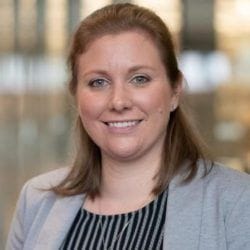
In your opinion, which scientific questions will set the trends in the coming decade, and which science problems would you like to tackle?
Increasingly, interdisciplinary activities are playing a major role in chemistry. This is, in part, due to the complexity of the problems that we are trying to solve. This also demands that the education and training of our future and current scientists requires adjustment, into new techniques such as pairing organic synthesis with chemical biology or computational chemistry. Scientists today, and of the future, are pioneering new ways in which to solve problems on a global scale, necessitating the development of new methodology (such as using enzymes to catalyse chemical transformations) and skills (like the contribution of artificial intelligence to synthetic chemistry).
How do you experience diverse leadership, diversity in your lab, publication, and peer-review, promotion and career progression, in your host country? What are the impediments for creating inclusive, equitable research labs, departments and practices?
Diversity is important in the research lab, which is synonymous with industry, and it has been shown that through increased diversity companies are more profitable, more responsive and there is an improvement in the company culture. Researchers with diverse backgrounds often approach the same problem from many different angles and, whilst one way is not necessarily the “right” way, this can lead to interesting discussions amongst a group and a sharing of ideas which ultimately leads to a better understanding of the question at hand. Working in a research lab is an opportunity for students (and professors) to be creative and to chase down interesting observations, often leading to those serendipitous discoveries that we hear about.
We need to start a dialogue about redefining merit, not only for hiring but promotion as well. Many women and POC are asked to take on more of the administrative roles at the department and university level leaving less time for purely academic endeavours. This needs to be considered when roles are assigned in labs, and also when applications for promotion and hiring are made. It is important that we challenge the assumption that the candidate with the most publications or the greater amount of external funding is automatically “better.’
What is your message to the next generation of scientists, and what are your tips for their success?
Despite the turbulent times that we live in there are an enormous number of opportunities waiting for you. Be brave and have the courage to chase after what it is that you are passionate about. And, if you take a wrong turn, don’t be afraid of change, no one has the right answer all of the time.
Some of the things that I have done to help me succeed have been by design, others have happened naturally. I would encourage you to find people who are open to push and educate you, these people will be fantastic mentors for the future. Seek out people with different opinions, they will challenge you in ways that you can’t possibly imagine, nothing is ever black and white, right or wrong, there is always another opinion or perspective to be had. Finally, we don’t arrive at our final destination on our own, make sure that you set an example for your peers and acknowledge the impact that others have had.
You have shown that you deserve to be where you are today, your hard work has made sure that you are ready for this moment, go out there and claim it!
Sarah Masters | University of Canterbury | Associate Professor
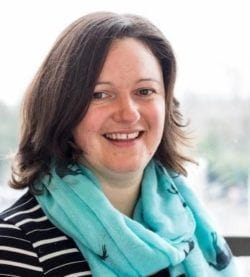
In your opinion, which scientific questions will set the trends in the coming decade, and which science problems would you like to tackle?
At a recent talk I attended, the presenter took the audience through the UN Sustainable Development Goals (SDGs), what each meant and the aims of them, and then asked the audience to indicate which ones they thought chemistry and chemists could contribute to. Answer? Pretty much all of them! However, trying to address these goals in small isolated groups is unlikely to work to achieve the goals will require interdisciplinary teams working together.
Often chemists rely on engineers to action their ideas, chemists work with environmental scientists towards solutions for clean water and sustainable crops, medicinal chemists work with other medical professions to develop vaccines, something that is certainly at the forefront of our thinking in COVID-19 times.
Whilst it is important to work collaboratively for the greater good of humanity, competition is also important to drive the ideas forward to tangible outcomes. Research and development resources are awarded to innovative ideas, and we should work to develop a culture where all researchers have an equitable opportunity to compete for those resources.
Therefore, it will not just be the actual science that determines whether we are able to achieve the SDGs, but also the working culture within science and engineering. How we work together to create a platform where all can compete and work collaboratively and/or competitively towards the SDGs will critically shape that opportunity.
How do you experience diverse leadership, diversity in your lab, publication, and peer-review, promotion and career progression, in your host country? What are the impediments for creating inclusive, equitable research labs, departments, and practices?
I am fortunate to have experienced a range of leadership styles and backgrounds in my career. Heads of School and Deans/Pro-Vice Chancellors of College/Faculty have been diverse and this has enabled me to have a broad perspective on what it takes to be a great leader. I am also fortunate to have had a doctoral advisor who strongly believed in the value of nurturing the next generation of academics coming through the system, instilling strong values of inclusivity and equity within his research group. Many students from the group have gone on to academic careers and are positive leaders in their academic units, thus demonstrating the power of constructive mentorship.
In my research group, I have mentored a truly international cohort, with students from as far afield as France, Spain, and Nigeria, as well as those from closer to home in New Zealand. The students have had different ages, religious beliefs, skin colour, gender identity and sexual orientation. We all work together on the goals of the research group and the more established second and third-year doctoral students mentor those coming into the group. I make it clear from the start that there are no “ism’s” within my group, no ageism, racism, sexism, or any other ism’s.
We have to work together within the group and with our collaborators from all over the world to succeed, and it is important to create a workplace where all feel valued, where there are no barriers to progress (other than the science itself!), and where the research team works together. I am always conscious to indicate that students in my research group work WITH me, not FOR me, towards their thesis. I strongly encourage prospective students to talk to current students to ensure that the culture of the group is one that will suit them and to find out what I am like to work for. It is also important to be there for students when times get tough, the second-year doctoral slump sets in, or things just don’t seem to be working. Motivating the students back to their productive best is important and a “we’re in this together” attitude is far more productive than the rather archaic view of “sink or swim.”
Not all group leaders take the same attitude and this is part of the culture within research that needs to be developed and improved. The main impediment to creating inclusive, equitable research labs, academic units, and practices are mainly the attitudes of the people involved in developing these. Ideally, people in positions of influence will have a positive mindset and be strong leaders who demonstrate a positive working environment and create a strong inclusive culture. With strong leadership and effective management, a working environment can change from being toxic to being effective in a relatively short space of time.
What is your message to the next generation of scientists, and what are your tips for their success?
My message for the next generation of scientists would be to take every opportunity that comes your way! Seek to develop your CV and make it stand out from others. By the end of a doctoral degree we can safely say that graduates can critically analyse large data sets, work independently and in teams, are literate and numerically literate, can give strong oral presentations, and write effectively. So, what is going to make YOUR CV stand out from the crowd?
If you are looking for a future in research and development, how have you sought to develop your leadership skills? How many students in your group have you mentored and how specifically has your involvement influenced their success? How have you overcome challenges in the research environment and turned this into a positive outcome?
For a career in academia, as well as the above what have you done to develop your own research ideas? What projects have you worked on independently of your doctoral advisor? How have you sought to develop your teaching skills and demonstrated effectiveness in teaching?
Regardless of what career path you wish to take I would also advise paying close attention to the myriad different leadership styles that you see in your day to day interactions around your research laboratory and beyond. What styles are effective and what styles are ineffective or even destructive? Look at the good styles and traits and aim to model those, and be determined not to adopt those traits or styles that are not positive. Aim to be a compassionate, constructive, citizen who contributes positively to science and to the culture of science.
Finally, be resilient. Throughout your career you will come up against many hurdles or barriers to progress or success regardless of who you are and where you work. Having the staying power to overcome these barriers will be critical to your success and also will provide a positive influence for those looking to you for leadership and guidance in times of hardship or personal/professional challenges. Ultimately, be the role model you always wanted to look up to!
Dickson Mambwe | University of Cape Town | PH.D. Candidate
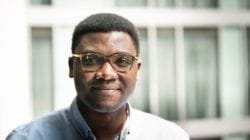
In your opinion, which scientific questions will set the trends in the coming decade, and which science problems would you like to tackle?
The world is becoming more aware of the regional gaps and how that affects contribution to science. In Africa particularly, infrastructure plays a critical role in the quality of science, regardless of the competence of the scientists. Collaboration are one thing, but African scientists would have to compete at the same scale as their colleagues in the second and first world countries. I think that if we are to really harness the full potential of the global scientific community, we need to start thinking about creating a central global governing body that should regulate funding, infrastructure development, and equal opportunities for competent scientists (not only chemists) across the globe.
I recently looked at the Hippocratic oath for medical professionals (because my wife will be taking it soon) and I keep wondering if the scientific community needs a similar code of conduct to not only make our science beneficial for mankind but to also unite us.
The next trends in science will not be as scientific as many expect, but on how we can all unite irrespective of our colour, background, and fields, to prepare for imminent problems and catastrophes that mankind will be facing.
As to the second part of the question, I would personally like to tackle the resilience towards clinical trials on the African continent. Africa is burdened with diseases, but there are very few clinical studies on the population, partly due to the ardent resilience of our people, I welcome opinions and community outreach programs to inform the importance of clinical studies on the continent.
How do you experience diverse leadership, diversity in your lab, publication and peer-review, promotion, and career progression, in your host country? What are the impediments for creating inclusive, equitable research labs, departments, and practices?
In my laboratory, there is diversity because the University of Cape Town (UCT) attracts diverse professionals. I learn from everyone that is willing to teach, not only from my advisor who is abundantly accommodating but also from all the professors in the department. I have had no limitation to who I can approach for guidance as a Ph.D. student in the department. As for career progression, my advisor has been more than instrumental in thinking ahead of time, by creating opportunities for me to meet the wider scientific community, even in non-conventional means like sharing dinner while he meets and discusses high-level projects with partners, just for me to listen in and perhaps learn something.
Inclusiveness starts when one realises their own imperfections and shortfalls. Science is for all humanity, and while a true scientist wants nothing more than to pass on skills and knowledge, this should be regardless of colour, creed, or descent. Because ultimately, where are going to be remembered for our impact on the ‘human’ race and not to our families or to a specific race.
In my opinion, some of the practical steps to encourage inclusive, equitable ad balanced research in research labs and departments are:
- Diversity of your people – everyone has something to bring to the table. Give equal opportunities for equal qualifications and suitability of your needs regardless of descent, gender, and colour.
- Interactive PI’s, Supervisors, Department heads and general leadership – hiring a professional or acquiring a postgrad student is one thing, but knowing your entire team is another, leadership should go beyond the work environment, create an atmosphere that makes every member of the team comfortable to express themselves freely (professionally). My opinion is for leaders to be more aware of their teams, it is not always possible, but a ‘deliberate’ effort to interact goes a long way. Know what’s going on, otherwise, you’ll hear about it in the news.
- Constructive and indiscriminate feedback – While it’s ok for leaders to have favourites, indiscriminate feedback is essential in a team setting, if there’s one thing most humans can do (I stand to be corrected), it’s sensitivity to criticism, and we easily compare. Give feedback on merit and be unbiased.
- Celebrate all victories, microscopic to monumental – As leaders, please give credit where it due, show appreciation for all achievements, they are not all great given your level of experience and mastery of things but it goes a long way for people that look up to you.
What is your message to the next generation of scientists, and what are your tips for their success?
My messages are as follows:
- We need you, come in numbers, come diverse – Science, just like your endogeneity, is not race-specific, it’s universal and approachable from a whole lot of directions. If you’re a human being, an earthling, you have a place in science, and you’re welcome to the field.
- Read beyond and learn from everyone – society has huge expectations from you, you won’t have to be a medicinal chemist to be asked about what the scientific community is doing about the ‘next pandemic’, they’ll still ask you because you’re a scientist. Bottom line: you’re a scientist, you should have an idea about everything, read, read, read, and learn.
- Identify a mentor or a go-to colleague to run ideas by. Your thought process as a scientist is very important, you’re going to think both rational and irrationally, you need a mentor to run ideas by, especially the dumb ideas, that person will be your guide and filter, you’re eventually going to change the world with them, these are lifetime colleagues (this can also be your advisor/supervisor, which brings me to my next point)
- Choose the right supervisor/advisor. Your advisor has an overall perspective on what the project you’re going to do, there are no promises, it’s going to be a novel scientific journey, and self-discovery/awareness. You’ll have unique experiences during your journey, some will be difficult. Do your research and choose an advisor that not only shares your interest in science but is also ‘human’. This person will forever be part of your journey.
Pall Thordarson | University of New South Wales | Professor

In your opinion, which scientific questions will set the trends in the coming decade, and which science problems would you like to tackle?
In short, I think we will trend towards studying complexity; complex chemistry, complex materials, complex biology. For example – liquid-liquid phase-separated droplets. This is a new emerging paradigm in biology. We are now realising that the way in which the cell organises itself depends quite heavily on the transient formation of liquid-liquid phase-separated systems, consisting mainly of two components that until were recently dismissed as “junk”, i.e., intrinsically disordered proteins and non-coding RNA. These complex structures appear to have many roles, ranging from how (multi)-cellular development is controlled to diseases such as cancer and neurodegenerative diseases including Parkinson’s and Alzheimer’s.
The solution to understanding liquid-liquid phase-separated systems will not come from biology – it will come from chemistry! This field is well suited for pushing the boundaries of what researchers in chemistry can study and understand and will require effort from many areas within chemistry including supramolecular, colloidal, organic, systems, computational, polymer, and biological chemistry. Through better understanding, we will eventually learn control over these systems with novel drugs designed and made by chemists. Furthermore, these studies will bring us much closer to answer what is arguably the biggest unanswered question in science – how did life originate. In my opinion, though, we might realise that the even more important questions are: what is life and how can we make synthetic life?
How do you experience diverse leadership, diversity in your lab, publication, and peer-review, promotion, and career progression, in your host country? What are the impediments for creating inclusive, equitable research labs, departments, and practices?
Diversity is mainly about leading by example. It is important to realise that diversity is really just about being decent – treating no person unfairly just because of what they are. If we all stop for a moment and reflect on that, we could go much further again. The problem is that our culture(s) still have many hangovers from times when it was acceptable to treat people unfairly due to some of the characteristics that made them unique. Now, you can’t “force” people to accept diversity or force them to acknowledge that their own views or actions are not always fair or equitable. But education and motivation can work. This is why leadership is so important. A leader, be it a supervisor, departmental head or University President that is truly committed to diversity can motivate those around them to follow. We all can do this. We need to recognise our own weaknesses, mistakes, and prejudices and then lead by example to convince those that are around us to follow.
What is your message to the next generation of scientists, and what are your tips for their success?
There is so much left to do! We are on the cusp of some very exciting times in chemistry, material science, and biology as we start to embrace further the complex and dynamic nature of most matter around us. Science brought us out of poverty and saved untold billions of lives from untimely deaths. Recent events have reminded us all that Science is a matter of life and death.
Scientists are also, by and large, reasonable people. Our community now overwhelmingly embraces the good that diversity brings to science and that should fill you with hope. Don’t let the odd naysayer distract you. To succeed – stay true to chasing your big questions, treat people with respect but also expect to be respected. Seek out role models in your community for advice and support – most successful scientists did get there because they do care about the profession as a whole and they will be happy to lend the next generation a helping hand if asked.
Magdalena Titirici | Imperial College London | Professor
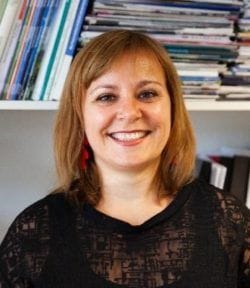
In your opinion, which scientific questions will set the trends in the coming decade, and which science problems would you like to tackle?
Key challenges for chemistry are to address global sustainability, to transition towards zero pollution, to electrify mobility and the chemical industry, and to digitalise the chemical industry. All this has to be achieved (and can only be achieved) by creating a more diverse and inclusive scientific community.
How do you experience diverse leadership, diversity in your lab, publication, and peer-review, promotion, and career progression, in your host country? What are the impediments for creating inclusive, equitable research labs, departments, and practices?
My group operates under an equal-opportunities statement that is a central part of my hiring and leadership policy. I am very lucky to be now part of an academic institution and department that values EDI and takes it very seriously. However, this was not always the case along my career path, and it hurts seeing institutions either ignoring it all together, doing the exact opposite by allowing individualistic leadership, or just doing it just to tick boxes because this is “what we should all be doing now.” EDI is crucial to achieving a more diverse and inclusive STEM environment and institutions need to embrace it fully: believe in it, and move from thinking about it as ”something that would be nice to do“ to ”something that we must do.”
What is your message to the next generation of scientists, and what are your tips for their success?
Gabriela Desireé Tormet-González | University of Campinas | Ph.D.
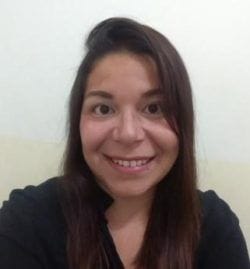
In your opinion, which scientific questions will set the trends in the coming decade, and which science problems would you like to tackle?
“No pain, no gain.” A very cliché motto used at the gym as an indicator that you need a very hard/intense/insane workout to get results. I like to extrapolate the same motto to some relationships between advisors/professors – students in chemical science. And, indeed, we cannot assume all the relationships are the same in academia and it would be very unfair to say it. But, it is also true many old conservative models are still being used in academia. In my opinion, this rigid, inflexible, harsh, vertical environment, which many times includes abusive relationships between professors-students, is a major problem in academia.
It is not something new that this oppressive relationship results in a determinant factor by which many grad and undergrad students decide to abandon the academy or even their perspectives to continue in the science field. Chemical topics are difficult; chemists solve complex problems that challenge your mind every day. If additionally, you are experiencing an abusive relationship, you have the whole factors to cause that even the most motivated students fall into a general discouragement. Science and society lost brilliant scientists every year for that reason. Along with the students that leave academia every year, we have high taxes of anxiety and depression between students that could be associated with the same factors.
Finally, I do not think we need to set an extra weight on the students’ shoulders through these rigid relationships. The professors and advisors need to understand that putting extra weight in the students is not a way to develop better professionals. It is a common mindset that the difficult or tortuous paths result in stronger scientists. The truth is it creates a lot of frustration; demotivation and you could end up by blocking the creativity, vision of a future scientist.
How do you experience diverse leadership, diversity in your lab, publication, and peer-review, promotion and career progression, in your host country? What are the impediments for creating inclusive, equitable research labs, departments, and practices?
My personal experience after studying in Venezuela and Brazil is that we can do better for guaranteeing the participation of students from all around the world in conferences and congresses. There should be more support for developing-countries students to attend more conferences. As a Ph.D. student in South America, I experienced the difficulties of attending international events. I observed two reasons for it: first, few international conferences take place in South America, especially the very specialized conferences; second, the financial resources to cover a long-travel to attend the conferences on the other side of the world are very limited. I feel optimistic right now because the terrible crisis occasioned by the COVID-19 has encouraged events to be thought in a remote fashion. As a result, more resources and initiatives are taking place in online platforms, so you can attend these events without having to pay for hotels, flight tickets, etc.
What is your message to the next generation of scientists, and what are your tips for their success?
A few tips for the next generation of scientists:
In chemistry, as in nature, diversity is essential.
Miriam Unterlass | TU Vienna | Assistant Professor
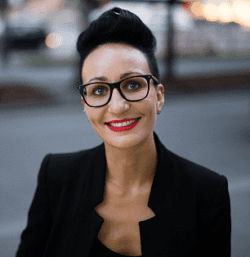
In your opinion, which scientific questions will set the trends in the coming decade, and which science problems would you like to tackle?
We are (i) facing a shortage of raw materials, (ii) are more aware of environmental and health concerns, and (iii) at the same time our demand for energy and a certain life standard increase. Therefore, I think that new technologies and materials enabling these technologies, especially in the realm of energy, will continue to be a major line of research in chemistry. Sustainability along the entire complex life cycle of a material, will play a major role. I think that this complex topic can be best tackled in interdisciplinary teams. My team’s current research focus lies on the development of green synthesis routes of compounds relevant to applications as materials and in biology. What I’d like to tackle next is to incorporate computationally-aided compound and green synthesis discovery. I am convinced that the complex problems that our world faces require a much larger pool of compounds to choose from so that we can find the best possible fit for a certain application. At the moment, the chemical space is strongly underexplored, and I’d like to contribute to exploring it in a more sustainable and efficient manner.
How do you experience diverse leadership, diversity in your lab, publication, and peer-review, promotion, and career progression, in your host country? What are the impediments for creating inclusive, equitable research labs, departments, and practices?
My lab currently comprises 15 co-workers of 10 nationalities and with diverse gender, sociocultural, and training backgrounds. This diversity is a catalyst for our most innovative projects. Even within the same discipline, different curricula generate different perspectives: a chemist trained in Brazil was exposed to different classes and university teachers than one from Israel. When we tackle a project together, these different backgrounds allow for uniting the best ideas and perspectives, and also to discard old habits with fresh approaches. Exposure to such diversity, but also accounts/reports of such experiences by those who have worked in diverse teams are very motivating for implementing diversity. At the same time, it is important to be aware of the difficulties. For instance, a person of non-academic background pursuing an academic career may make experiences that are new and perhaps foreign to their socioeconomic background.
At the same time, their habitus in Bordieu’s sense, may also stick out in their ‘new’ academic environment – they might be foreign there too. This generates a twofold non-belonging, which is challenging and difficult. We need to be aware of these challenges and support our colleagues and students best so that they do not feel estranged. One aspect that I try to meticulously implement is inclusive language. Language is powerful. I further think that administrative rules promoting diversity are necessary to promote change. For instance, in Austria, we have equal opportunity representatives (I am one of three at the Faculty of technical chemistry at TU Wien) that are involved in any hiring process from the job advertisement to the interviews and filling the position.
What is your message to the next generation of scientists, and what are your tips for their success?
Learn as much as you can of as many disciplines as you can. Read as much as you can, discuss as much as you can. Talk to as many people as you can. Go abroad and immerse yourself in different cultures. Listen to music. Enjoy art. Practice critical thinking. Broad knowledge and exposure to different ways of thinking will allow you to tackle problems and do research in a highly innovative way. In your own discipline: read articles, discuss them with your peers. Seek to join research groups that do great research and on top of that have a strong discussion culture and feature co-workers of a broad range of scientific and socio-cultural backgrounds.
Austin Wadle | Duke University | Ph.d. Student

In your opinion, which scientific questions will set the trends in the coming decade, and which science problems would you like to tackle?
In my field of environmental chemistry, the common questions after discussing new and innovative research can be summarized along the lines of “Really interesting work, but does it matter?” I think many questions like this will become more commonplace as the veneer of machine learning and other computational methods loses its shine. It’s a question I commonly ask myself that helps guide my research to the most impactful places. I want to help develop and apply the techniques foundational to bench-scale chemistry to broader and more complex environmental challenges. This includes how to use the great advancements in cheminformatics to inorganic environmental chemistry to fill in gaps in prediction and precision.
How do you experience diverse leadership, diversity in your lab, publication and peer-review, promotion, and career progression, in your host country? What are the impediments for creating inclusive, equitable research labs, departments, and practices?
I think my response to this question is very much shaped by how early in my career I am, only just finishing my second year in my Ph.D. program. And while I’m early in my career, I’m also very young, just 23 at the writing of this article and still in the process of figuring out who I am and what that means in a world of diversity and inclusion. I first came out as gay to an accepting family and school environment when I was 15, and then began struggling with my gender, coming out as nonbinary at 20 years old. I was assigned male at birth and still can pass as cisgender in part because I haven’t felt safe enough in a state like North Carolina to seek aspects of medical transition that would ease my gender dysphoria. While progress has been made on trans rights, many of these changes are made in the framework of assimilating transgender people and not empowering us and dismantling oppressive systems like gender. I could bring up some of the relatively straightforward ways my department could improve on this, like adding pronouns to an email signature. While steps like these are nice, none of them address the fundamental problems that I face as a nonbinary Ph.D. student. I need the power to feel comfortable correcting professors and fellow graduate students who misgender me without fear of retaliation.
What is your message to the next generation of scientists, and what are your tips for their success?
My message is one of contradiction. Somehow, we have to balance the hope that we can work to change the system and that the system will never reward us in the ways that are commensurate with that work. Professor Chanda Prescod-Weinstein wrote that activism isn’t a substitute for technical expertise. It was later reiterated to me that, despite any implications otherwise through diversity statements or espoused values of equity and public engagement, that faculty hiring committees aren’t looking for activists, they’re looking for researchers at the cutting edge of their fields. I’ve tried to establish my own metrics of success, particularly because the world of academia has been set up to unload rejection after rejection of your work. To be clear, I have not been successful in avoiding feelings of inadequacy around both my technical and non-technical work. However, it is worthwhile. The metrics our institutions use for success will never capture the feeling of gender euphoria presenting my science in a dress, it will never capture the beautiful relationships I’ve developed with my fellow graduate student workers, it will never count the memes I’ve made with friends that explain catalysis better than any biochemistry professor I’ve met, just to name a few of the wonderful things I’ve done as a Ph.D. student.
Vivian W.-W. Yam | University of Hong Kong | Professor
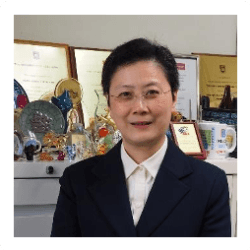
In your opinion, which scientific questions will set the trends in the coming decade, and which science problems would you like to tackle?
There are many pressing scientific questions that need to be solved and grand challenges that need to be met. The challenges are well-described in the UN Sustainable Development Goals that require interdisciplinary and global efforts. We are interested in functional materials research, especially molecular functional materials based on metal-organic and organic molecules that can perform optical and optoelectronic functions in addressing energy issues by generating new sources of clean renewable energy through solar energy conversion to produce solar fuels and solar electricity, as well as OLEDs for energy-efficient lighting and display technology. Chemistry is a central science. We are working at the interface of chemistry, physics, and engineering to achieve materials and energy research. On another front, our research focusing on luminescence sensing, imaging and diagnostics will require us to work at the interface of chemistry, biology, and medicine.
How do you experience diverse leadership, diversity in your lab, publication, and peer-review, promotion, and career progression, in your host country? What are the impediments for creating inclusive, equitable research labs, departments, and practices?
Hong Kong is a highly international and metropolitan city, a place where east meets west. We are used to multi-national culture and diversity. Hong Kong has always been open and inclusive. We have a robust system to embrace equality, diversity, and inclusion (EDI). Our university is international and is a founding member of “HeForShe” movement to promote gender equality. At our university, workshops on gender issues, diversity, and unconscious bias and mentorship programs for young female faculties on a one-to-one mentor-mentee pairing are in place. Balanced representations are sought as far as possible in committee compositions. As a laureate of L’Oréal-UNESCO For Women in Science Award, I am strongly committed to promoting gender equality and diversity. I also serve as Chair of the Committee for Women Chemists of Chinese Chemical Society. Our Committee organizes activities, like symposia dedicated to women chemists at national meetings. We support each other and have regular exchanges through our WeChat group. I am also a member of the International Organization for Chemical Sciences in Development (IOCD), UNESCO that promotes chemical sciences for sustainable development and EDI. I am fortunate to have an understanding and supportive family, as well as an open and supportive research and working environment. I also provide a supportive and inclusive environment for my research group consisting of a good mix of boys and girls from diverse backgrounds from local and non-local origins. As an author, I do not feel there is a bias from my experience in publishing and peer-review. As a reviewer and editor, we just look at the work, focusing on the innovation, quality, and rigor of the science.
What is your message to the next generation of scientists, and what are your tips for their success?
As a scientist, one should excel not only in one’s own discipline but also should have a broad perspective and knowledge of other disciplines, at least to understand the scientific problems and challenges in the other disciplines and to learn the common language to communicate. These are important for cross-disciplinary collaborative research and teamwork. One also needs to have a strong foundation of the fundamental principles and concepts to achieve life-long learning. One should be open-minded and should be open to criticism and self-reflection, inclusive of diverse views, and not to be overly defensive. One should also be creative, have the passion and the motivation to strive for excellence. I am a firm believer that regardless of one’s gender and race, as long as one has the passion, dedication, and determination, one can excel. Science has no borders. We are living in a challenging world. We need diversity and inclusion which can be facilitated by cultural competence and we must go hand in hand to make the world a better and more sustainable place for us and our future generations. We also need young people, irrespective of gender, races, and nationality to be engaged in doing science and research, and to become our next generation of leading scientists.
Yingwei Yang | Jilin University | Professor
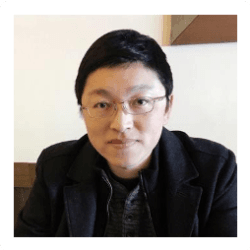
In your opinion, which scientific questions will set the trends in the coming decade, and which science problems would you like to tackle?
Science knows no boundaries. But nowadays, in my opinion, there are too many obstacles set by certain politicians and conservative scientists. The biggest scientific question we need to address is how to embrace a competitive but entirely open research environment where international, interdisciplinary, team-oriented, and technology-intensive modern researches can be collaboratively conducted without any holdback or artificially-set bar.
How do you experience diverse leadership, diversity in your lab, publication, and peer-review, promotion, and career progression, in your host country? What practical steps can be used to encourage inclusive, equitable research labs, departments, and practices?
China is a non-immigrant and developing country with a very large population. In terms of the diversity of leadership and diversity, it is a different story for us to cover different races since we have very limited numbers of non-Chinese people living or studying in China. However, we have many women professors and students and also an appreciable number of foreign professors in our university. Particularly in my lab, 60% of graduate students are female and they love doing research in the field of organic chemistry and supramolecular chemistry. Meanwhile, we have a female associate professor, a French male associate professor, and an Indian postdoctoral scholar working in my lab.
In my experience, publication is always not easy for early-career researchers, but peer-review is relatively a fair process and I do appreciate that. In terms of promotion and career progression in China, I would say the overall environment is fair, and young researchers even have much better chances to get a higher salary and better funding support since certain programs and funding/award opportunities have age limitations that prefer young scientists under 45 or sometimes 35.
The main impediment for creating inclusive, equitable research labs, departments, and practices is that China is still a developing country and is always not that attractive to foreign researchers and students, especially from western countries. Meanwhile, the best Chinese candidates for graduate studies and postdoctoral researchers choose to go to those developed western countries, the US, Canada, UK, Germany, France, Japan, etc., instead of staying in China.
What is your message to the next generation of scientists, and what are your tips for their success?
For the next generation of scientists, you should always enjoy the freedom of doing science, but do not be afraid to tackle big problems and never let failure stop your steps.
Do whatever you’d really love to do and stick with it with passion. Research is a long journey, maybe life long for many scientists, and in order to stay motivated, you should take small steps, work smarter, and reward yourself whenever you meet a small milestone during this journey. One important tip: actively build your network, collaborate wisely, and don’t hold back to approach senior researchers or even well-known scientific leaders as they are often very supportive and encouraging.